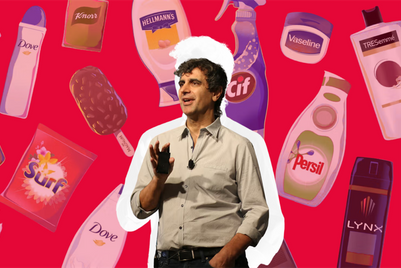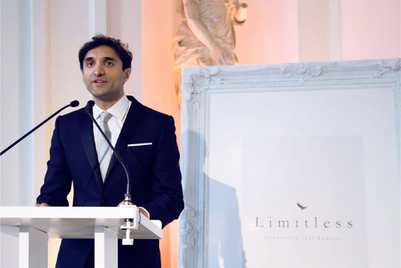_2.png&h=570&w=855&q=100&v=20250320&c=1)
Authenticity – the buzzword of 2018. Marketers may roll their eyes at the word but it’s clear that authenticity is a key trope that Gen Z audiences seek out. You need to look no further than the surge in popularity of the BeReal app, providing evidence of the growing prominence of honesty in the social landscape.
Ogilvy recently announced it is no longer working with influencers who edit their bodies or faces for ads. But should we be relying on agencies to enforce this change, or is it time for influencers to be real with us?
Evolution of influencer marketing
When millennials came of age on social, they sought out those at peak perfection. Western ideals around body image and beauty, well-kept and perfectly proportioned homes with manicured gardens as well as endless "relationship goals"-littered social feeds... and we lapped it up willingly.
Yet, this unhealthy relationship with image inevitably resulted in perfection fatigue. Followers became disillusioned with this breed of influencer. This was compounded by some dubious activities from some large influencers – like fashion influencer, Marissa Casey Fuchs, hawking out her “spontaneous” engagement to the highest bidder or Tiffany Mitchell’s motorcycle “accident” with a carefully placed water bottle brand in shot. Followers and brands were keen to call them out of their icky behaviour.
Gen Z was already moving away from these highly curated, hyper-stylised and unrealistic expectations. What they sought were more authentic and relatable people – real people, blemishes and all. Mummy bloggers began to show the chaos of real-life parenting, fashion brands started to use more diversity within their campaigns and the body positivity movement was born.
Influencer marketing continued its evolution throughout the pandemic. In a time of incredible uncertainty people needed to be reassured and we saw the rise of the expert as the influencer – think Dr Fauci and Chris Whitty. There came a shift in "influencer versus creators". The former was seen as influential for being influential’s sake and the latter as providing real value to their communities.
Ogilvy's decision aligns with the trend of total transparency that started about three or so years ago. It’s an honourable thing to do but the conversation around authenticity is nothing new. This shift is grounded in consumer wants and needs. The question is whether consumers will continue to be attracted to the realness?
A fake-free future?
Looking ahead it will be interesting to see whether "filterless" and "realness" will be the cornerstones in the quest for authenticity. With our metaverse obsession in full swing and VR and AR becoming merged with our digital experiences, how easy will it be to control our perceptions over what is real or what is not?
Lil Miquela, the digital influencer, amassed a following of more than three million on Instagram alone and she’s anything but real. A “character” was initially created by an anonymous person. While the anonymity of the creator raised ethical questions around digital gender cos-playing – you knew the character was knowingly unreal. This will only continue with the rise of augmented reality and extended reality where filters and digital overlays will become the norm.
And beyond appearance, we have people blurring the lines between reality and fiction. We have conspiracy parody accounts from the likes of Peter McIndoe, who created Birds Aren’t Real. The account blurs the lines between for those in the know and unwitting observers (conspiracy theorists). While the line between reality and fiction is fine, content and activity from the account are created with a wink in the eye.
Further, the reincarnation of the 1990s IT girl, Julia Fox – Josh Safdie’s muse, Ye’s ex and, now, a Supreme model, definitely has an air of performance art about her. From her goblincore aesthetic, affected accent and her appearance on every red carpet this season, it has people questioning: is she for real?
And what’s the difference between good and bad when it comes to editing – where do we draw the line? Heavy make-up and plastic surgery can all seem like versions of editing. You could say that RuPaul edits themself – yet the difference is that drag offers an authenticity and honesty that other influencers caked in makeup do not offer.
So for me, editing isn’t necessarily the issue – it’s the honesty behind it. If influential celebrities like Kylie Jenner were genuine and transparent about the filters they use or the work they’ve done, then an audience immediately knows that what they see isn’t real. Younger generations are savvier than you think. We’re asking influencers to be transparent about using social for advertising, perhaps it's more a question of asking them to be up front with their filtered appearances, rather than scrap them altogether.
So while it’s a bold move for an agency to take such a stance, it’s unlikely to totally eradicate the issue of inauthentic influencing. The dawn of the metaverse is indicative of the fact that we like an escape from reality, and while the likes come rolling in, it’s unlikely that influencers are going to be changing their ways dramatically.
Paul Greenwood is the global head of research and insight at We Are Social


.jpg&h=334&w=500&q=100&v=20250320&c=1)

.jpg&h=334&w=500&q=100&v=20250320&c=1)

.jpg&h=334&w=500&q=100&v=20250320&c=1)

.jpeg&h=334&w=500&q=100&v=20250320&c=1)


.jpg&h=334&w=500&q=100&v=20250320&c=1)
.jpg&h=268&w=401&q=100&v=20250320&c=1)






.jpg&h=268&w=401&q=100&v=20250320&c=1)